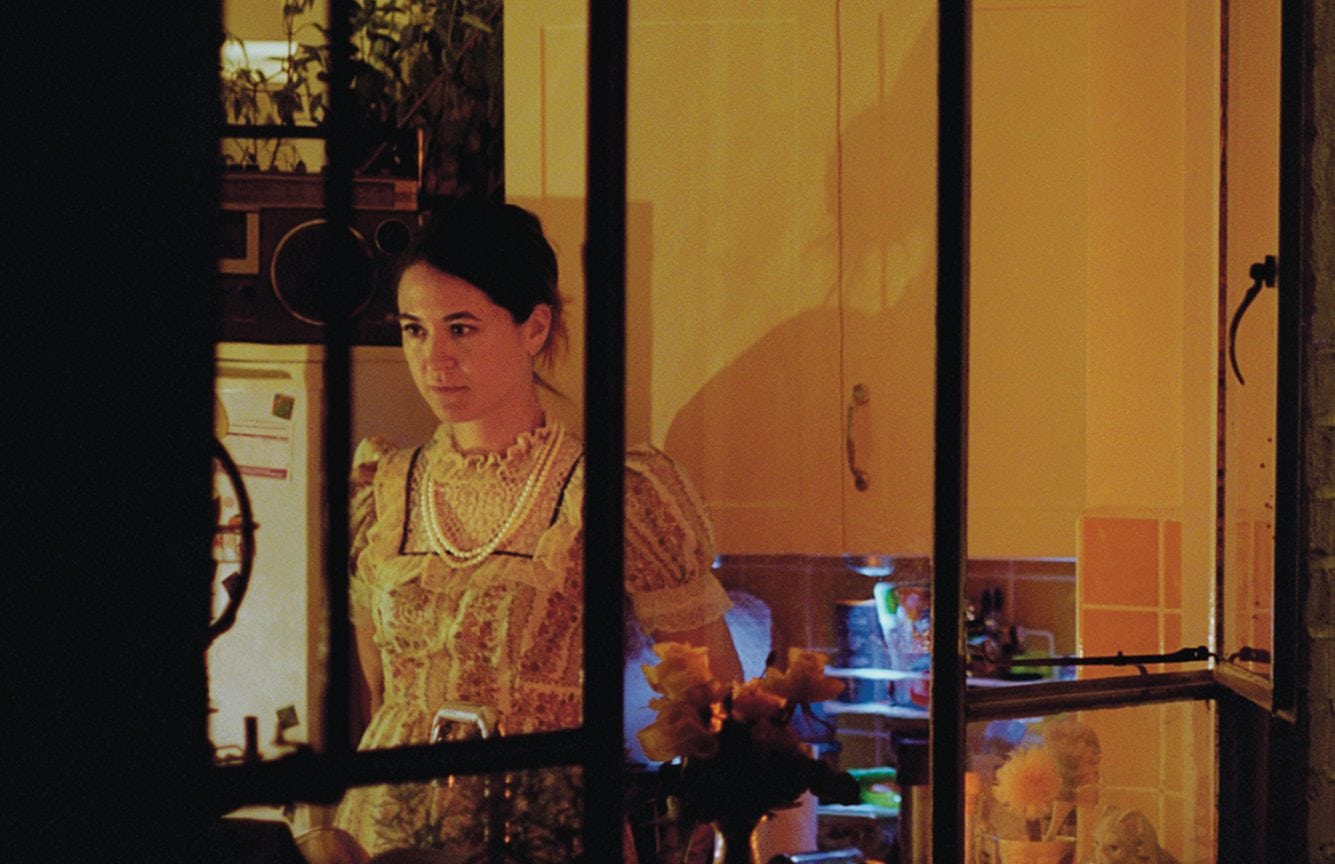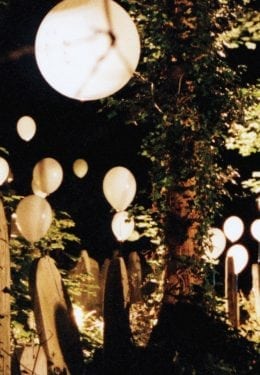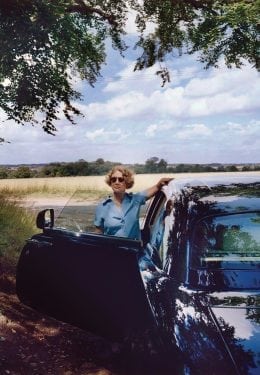Esther’s party
When I wake up, I’m still wearing Esther’s dress. My necklace has made pockmarks across my cheek and neck, and the awkward angles of our two bodies have caused her elbow to settle uncomfortably under my ribcage. I suppose that’s what woke me. If I’ve even been sleeping.
Careful not to disturb her, I ease out of bed and head downstairs, avoiding the third step from the top, which always creaks. I know this house in the dark now. I can recognise its smell, identify its own, very particular kind of silence.
In the kitchen, the counters are littered with half-eaten food trays; greasy skeletons in tinfoil boxes. Five out of nine overhead lights work. Three out of three tenants are too complacent to change the broken bulbs. You wouldn’t believe it took me six years to find this place. To find her. And now I’m leaving.
The party wasn’t for me, it was for Esther. We strung fairy lights around the back wall of our small garden and lit a fire in the cast-iron pit we bought on Blackstock Road earlier than afternoon. We made pisco sours that went largely untouched because I added far too much egg white. Esther made her own cake, because no one else could have done it better.
And all the time, I never mentioned I was leaving.
It must be coming up for 4am now. The others are asleep. Stepping outside, the garden smells like damp cigarette ash, but the cold air feels nice on my face. Our neighbours’ cat is watching me from his usual spot on the back wall. I wonder how much he knows.
Yesterday morning, Esther and I walked up to Crouch End to pick up supplies. On the way back, we stopped inside a vintage clothing shop. I don’t own many dresses; the one I’m wearing now belongs to Esther. For the party, she bought a sky-blue tea dress patterned with tiny flamingos. I hated it, of course, but I thought she looked beautiful and I told her so. Walking home, she threw her arms around my neck and pretended to climb onto my back for a ride. It’s an old joke.
God, I love her.
The sky is turning paler now. I can hear birds. It guess it’s later than I thought. I want to lie down in the grass and sleep there, next to the potted herbs, lavender and wild flowers. I want to become part of the soil.
The thing about Esther is, I never even knew I had a sister until I was eighteen. And I didn’t meet her until I was twenty-four. On the day I moved in with her and Jack last spring, she was repainting the living room. Her face and arms were freckled with Antique White and she was wearing knee-high socks and pyjama shorts. Her lop-sided smile was so much like my dad’s. You’re family, she told me. You can stay as long as you need to. Then she asked whether I preferred Old Navy or Midnight Blue for the alcove.
Right now, Jack is asleep in the spare room. My room. I didn’t hear the argument – I was in the kitchen, squeezing extra limes for my pisco sours. I saw Esther step outside for a cigarette, shivering in her flamingo dress. Jack caught my eye from the hallway and motioned me with a tilt of his head. It’s OK, he told me. She doesn’t know. She doesn’t know about us.
Sleeping next to her, as I was just minutes ago, with her warm breath on my cheek and her elbow in my ribs, I should have felt guilt. Shame. But I didn’t know how.
I bought my train tickets last week. My bags have been half-packed for days.
The sun is coming up now. I can hear voices from the house next door. Soon Esther will be awake and we’ll go for eggs and hot buttered sourdough at the cafe down the road. We’ll read aloud to each other from the weekend supplements and play the communal board games, making up pretend rules for the ones we don’t understand. She’ll talk about Jack and I’ll agree that, yes, he’s one of the good ones really. We’ll buy coffees and walk around the lake and she’ll remind me, for the third time, why you should never feed bread to ducks.
She’ll thank me for being part of her life.
IMAGE: DANIEL KEYS
Daniel is Haringey-based artist who predominantly works with analogue photographic techniques. Part of an independent photography group based in Crouch End, his work concentrates on representing socio-political themes and often focuses on the female figure within suburbia.
WORDS: SCARLETT WRENCH
Scarlett is a magazine journalist originally from West Sussex where she grew up in a very creative family. She has been living in Finsbury Park for four years and loves her neighbourhood. This short story is the first piece of fiction she has written for many years.


